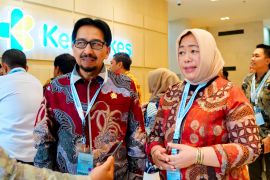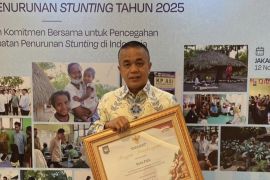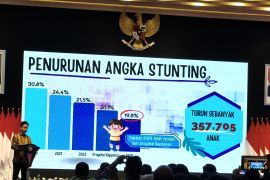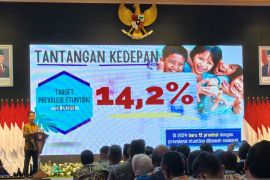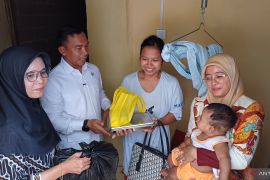"We must take advantage of the demographic bonus momentum in 2030 to prevent a demographic disaster due to stunting," Deputy Chairperson of Commission IX of the House Charles Honoris said during the "8th Great Parents Class Discussion," which was followed online from here on Tuesday.
"We also aspire to reach Gold Indonesia 2045 to become a country that earns per capita income on par with developed countries, so that we can get out of the middle-income trap," he added.
The discussion was organized by the National Population and Family Planning Agency (BKKBN) and was themed "Chasing growth in toddlers." It was held with the aim of ensuring that all children get a fair opportunity to grow and develop according to their potential.
Honoris emphasized that the goal of getting out of the middle-income trap can be achieved if Indonesia has a new generation that is healthy, strong, and resilient, and efforts to build such a generation would need to start from their family, which must give them the right upbringing.
"Striving for the growth of toddlers is important because toddlers are a period for learning and developing properly. This is the time when strong foundations are laid for our children's cognitive, emotional, social, and physical capabilities," said Honoris.
In the era of globalization and rapidly developing digital technology, toddlers are facing challenges that have never been seen before, he added.
Therefore, he said he considers it important for all elements of society to provide proper support and attention to ensure that Indonesian children can face challenges in the future.
"The period for the most decisive nutrition intervention is in the first 1,000 days of life (0–2 years) until the child grows and develops optimally according to his age," he said.
"At that time, the toddler's brain develops 80 percent, and this period cannot be repeated. Therefore, if the toddler's growth and development process is not optimal, it can increase the risk of stunting," he added.
Honoris lauded the role of all toddler family development (BKB) cadres, family planning field officers (PLKB), the family welfare empowerment team (TP PKK), and posyandu cadres who have worked hard to implement programs directly in the community to reduce stunting.
"I appreciate all officers in the field who have provided counseling and fostered parents of toddlers to be able to care for children properly and correctly, so that together we can create quality human resources," he said.
Furthermore, based on the Indonesian Nutritional Status Study (SSGI), stunting prevalence fell to 21.6 percent in 2022 from 24.4 percent in 2021, he added.
He expressed optimism that with good cooperation across sectors, the stunting target of 14 percent will be achieved.
He then added that the possibility of achieving a stunting rate of close to zero percent is wide open.
Related news: Midwives' struggles in birthing a stunting-free nation
Related news: Ending the vicious cycle of childhood stunting
Translator: Lintang Budiyanti Prameswari, Katriana
Editor: Rahmad Nasution
Copyright © ANTARA 2023








